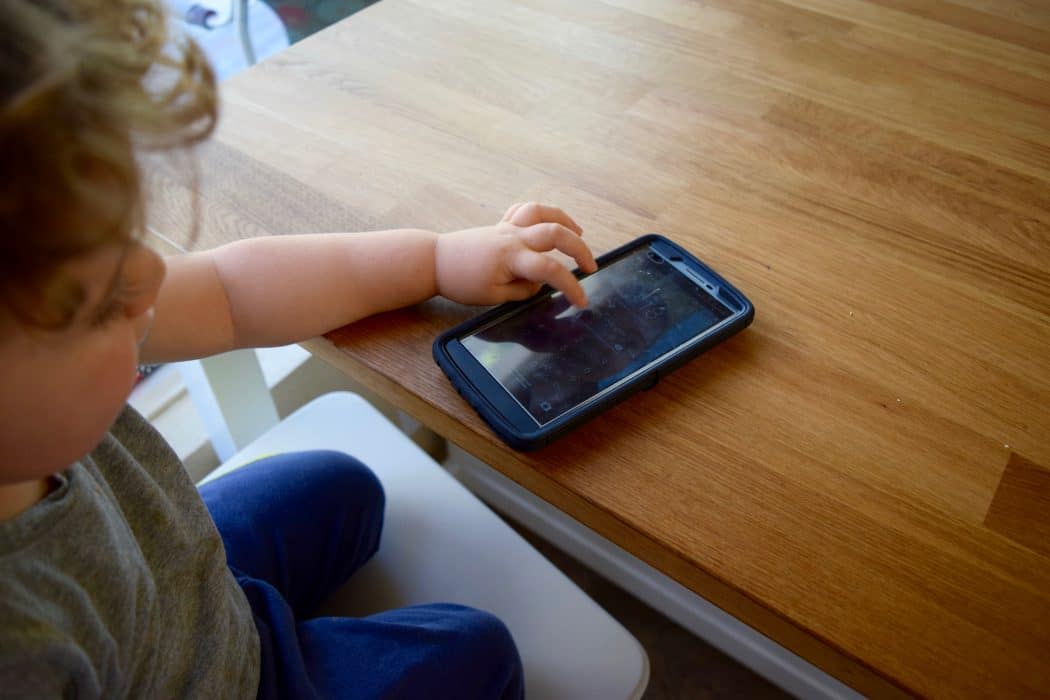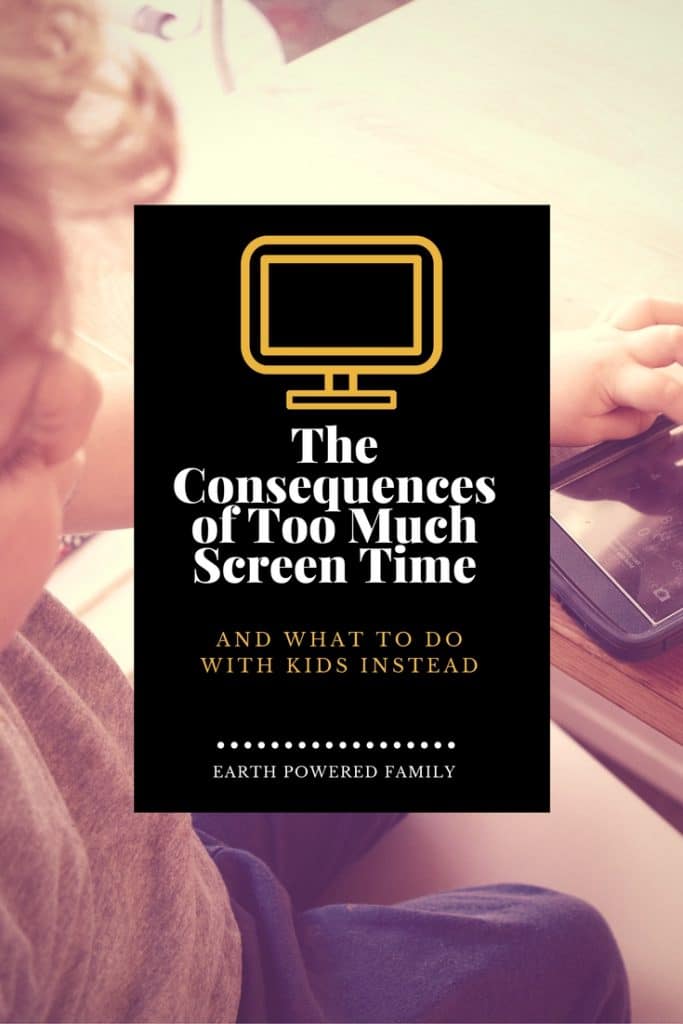The other night we put a classic children’s movie for Dominik to watch for the first time: “My Neighbor Totoro”. Of course, he absolutely loved it and sat through the whole thing. It was nice to watch his excitement over the magic he was seeing for the first time. But it got me thinking about screen time again.
I remember during one of our first few pediatric appointments with Dominik, we were given a handout about recommendations for “screen time”. What is screen time? Screen time is any time spent watching TV or on a computer, tablet, or smart phone. Basically, time spent in front of a digital screen, whether passively watching or engaging in something like a game. So what’s the big deal? Why have any guidelines at all?
During this time in our history, children are spending more time than ever either watching TV or engaging on an electronic device of some sort. Even if they aren’t active participants, they are fully aware of our (their parents and caregivers) screen habits of binge-watching TV and constantly checking our phones. I am most definitely including myself in this category (I love scrolling through Pinterest on my phone), so there’s no shame in it, it’s just that it has become fully part of today’s society. And it’s wonderful that technology has come so far in such a short amount of time, but that doesn’t mean that it’s necessarily a benefit to the minds and bodies of kids.
Now, although I limit screen time for my toddler, we are not completely screen free. There are mornings that he wakes up heinously early after keeping me up all night and I feel no regret in turning on the TV to ease myself awake. And then there are days in which either one of us are not well, or times when I need a break and nothing else has worked. And that’s okay. And there are great educational games and programs that do actually teach things to kids (I grew up learning from “Sesame Street”). But there’s a huge difference between occasional screen time for a treat or sanity’s sake and sitting kids in front of the tube all day. I made a brief list on some of the consequences of too much screen time.
Too much screen time…
- Inhibits children’s ability to recognize human emotion. Researchers at UCLA found that when kids spend time away from screens, they were better able to pick up on nonverbal emotional cues in social situations. Without screen time, they were given the opportunities for more social interactions, which of course improved their ability to read nonverbal expressions of others and better engage socially. This can translate into a child’s ability to make and maintain friendships and to later interact appropriately in jobs and relationships.
- Makes it more difficult for children to focus or concentrate. Television programs, for example, often flash images and subjects much more quickly than would happen in the real world. Any screen time is also a form of visual and aural entertainment, and it’s easy for kids to become used to getting that sort of instant gratification. But what this does is prevents the brain from developing focusing and concentration skills.
- Stunts cognitive development. Especially if screen time is abused during the first three years of life (called a “critical period” of brain development), it can have consequences on cognitive skills that last a lifetime. When small children learn from real world situations, they have the time to absorb the sights, sounds, and feelings of their environment, which gives their brains the opportunity to make these important connections. But screen time also takes away from a child’s opportunity to imagine things and to think for themselves or, in other words, to be active in their learning process.
- Teaches kids to expect immediate gratification. TV provides instant entertainment and phones/tablets react immediately to touch and whim. Physically, this releases dopamine, the “feel good” hormone, which makes it enjoyable for kids. But with too much of this, kids will come to expect things to always happen instantaneously.
- Keeps kids from moving. When screens are used, children are sitting still. This obviously has implications such as obesity and health issues. But this also prevents children from learning from their physical movements. When small children move and play and run, they are learning how to control their bodies, how to judge distance, how to control impulses, and all about the physical world around them.
- Are more exposed to advertising. Advertising has a purpose, which is to make you want something. This is no different for kids. Advertisements aimed at children have the goal of making kids want things like a particular junk food, a trendy toy, or to go to a particular restaurant. This can influence their ideas about stereotypes, can make them desire unhealthy food, develop a bad consumer/shopping habit, or become completely trustworthy of everything they see on a screen.
So what are alternatives to screen time? How can we keep our kids occupied? How can we catch enough of a break to do some laundry or run to the bathroom or get a chance to sit still?
- Read books or create a cozy book corner
- Play dress up
- Set aside special toys for “I’m bored” moments or when you need them distracted
- Build a fort
- Build with Legos or blocks
- Go outside
- Draw or paint
- Make music with instruments or found objects from around the house
- Have a playdate
- Do a puzzle
- Play a game
- Use an activity book
- Have kids help with chores
- Cook a meal or bake a treat
- Put kids in charge of something, like planning a Saturday
- Spend time with our kids, even if it’s just chatting or going for a walk
It’s also important to remember that screen time doesn’t only happen at home. When I started out teaching, every school that I was at (whether for student teaching or working as a teacher) was in the process of introducing tablets to everyday classroom work. A large part of it for the schools was because they were almost always part of a grant program and the donors wanted evidence of their use. The other part of it was the pressure to get kids “technologically literate”, which has become necessary for their later success. You would think that this would be wildly popular among the students. And it was, at first. But in every situation that I observed, the kids grew quickly frustrated with it and begged to go back to lectures and worksheets and hands on learning. I think that this situation highlights the disconnect that technology can create. A disconnect between battery powered computers and hands on learning. A disconnect between seeing and smelling/feeling/hearing/tasting/experiencing.
So we are left with bigger questions. How much is too much time spent in front of a screen? When does it go from a bad habit to inhibiting development? How do we balance our own sanity and teaching kids how to keep up with a technological world with what’s best for their physical and mental development? In the end, it comes down to our judgement as parents and educators and what we observe from our own children. It’s also a sobering reminder to myself to put down my phone and interact more, because I am learning right along with my son.






